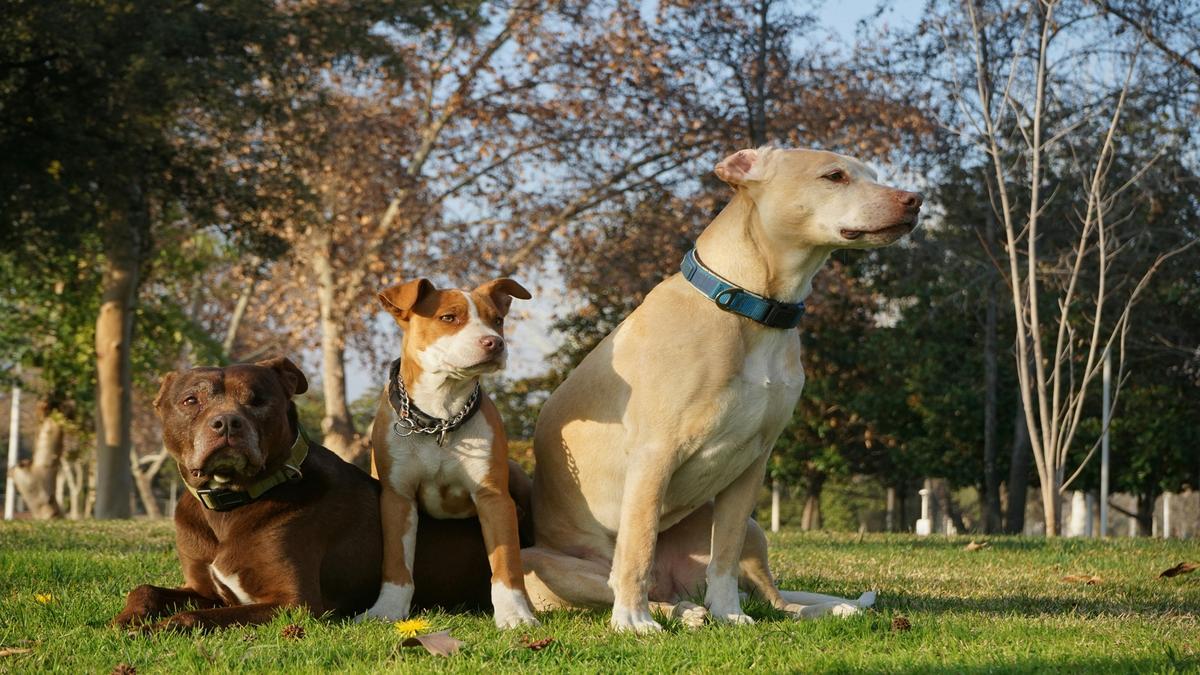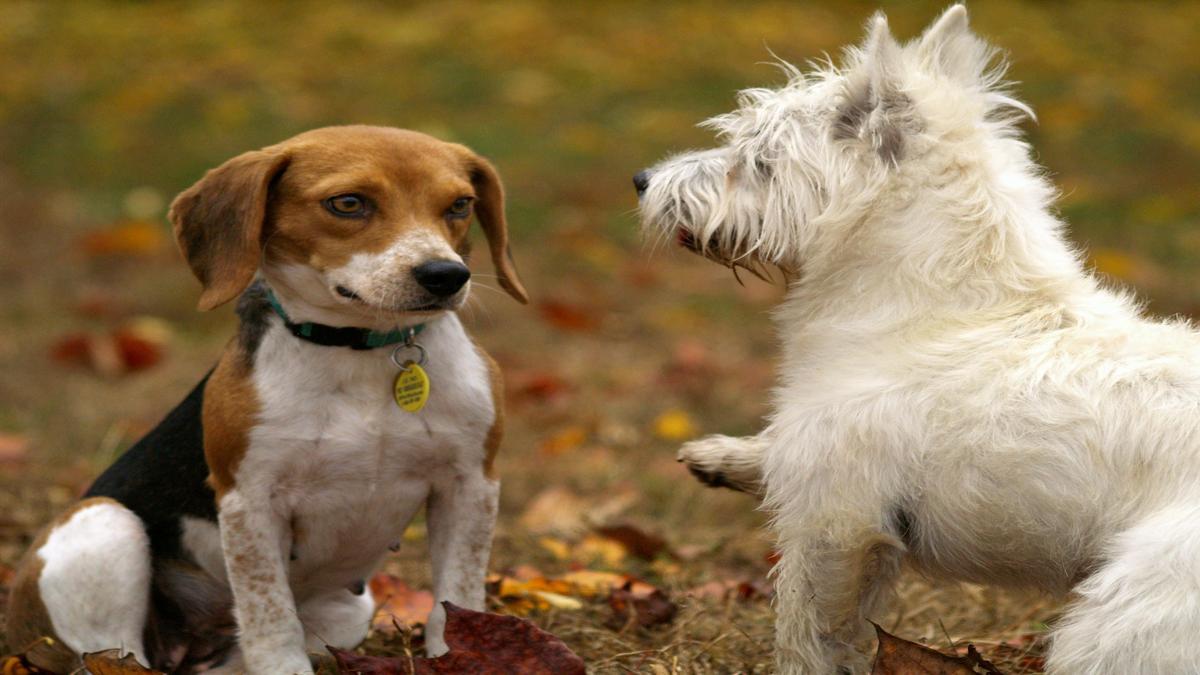Familiarizing Yourself with Breed Tendencies in Dogs, understanding breed-specific traits is key to unlocking a deeper connection with your furry friend. By tailoring training methods to suit your dog’s needs and recognizing genetic predispositions, you can ensure a harmonious environment that promotes long-term health. Explore unique personality traits across dog breeds and adapt your lifestyle to accommodate your canine companion’s characteristics. Embrace diversity, participate in breed-specific activities, and celebrate the canine diversity that makes each pup special. Nurture your dog’s breed-specific instincts, provide enrichment activities, and strengthen the human-canine bond by enhancing your knowledge of dog breed traits.
Essential Points
- Different dog breeds have specific traits and characteristics.
- Understanding breed-specific traits can help you provide better care and training for your dog.
- Researching your dog’s breed can help you anticipate behavior patterns and tendencies.
- Breed-specific traits can influence your dog’s exercise and grooming needs.
- Knowing your dog’s breed traits can enhance the bond and relationship between you and your furry friend.

The Importance of Understanding Breed-Specific Traits
Enhancing Your Bond with Your Canine Companion
Understanding your dog’s Breed-Specific Traits is crucial in building a strong bond with them. By familiarizing yourself with your dog’s tendencies and behaviors, you can tailor your interactions to meet their needs effectively. This deep understanding will help you communicate better with your furry friend and strengthen your relationship.
One way to enhance your bond with your canine companion is by spending quality time together. Take your dog for regular walks, play games, and engage in activities that they enjoy. This will not only keep them physically active but also create a sense of trust and companionship between you and your dog.
Tailoring Training Methods to Suit Your Dog’s Needs
When it comes to training your dog, it’s essential to tailor your methods to suit their Breed-Specific Traits. Different breeds have unique characteristics and learning styles, so what works for one dog may not work for another. By understanding your dog’s breed tendencies, you can navigate the training process more effectively.
| Breed | Training Approach |
|---|---|
| Labrador Retriever | Positive reinforcement training |
| German Shepherd | Firm and consistent training |
| Poodle | Mental stimulation and rewards |
Using the right training approach for your dog’s breed will maximize the effectiveness of your training sessions and help your dog learn desired behaviors more quickly.
Maximizing Training Effectiveness
To maximize the effectiveness of your training sessions, consider the following tips:
- Be consistent: Use the same cues and rewards every time you train your dog.
- Keep sessions short: Dogs have short attention spans, so keep training sessions brief and engaging.
- Use positive reinforcement: Reward good behavior to encourage your dog to repeat it.
- Stay patient: Training takes time, so be patient and persistent with your dog.
By tailoring your training methods to suit your dog’s Breed-Specific Traits and following these tips, you can unlock the secrets to a well-behaved and happy canine companion.
Recognizing Genetic Predispositions in Dog Breeds
Understanding Health Risks Associated with Breed-Specific Traits
When it comes to understanding your furry friend, recognizing genetic predispositions in different dog breeds can provide valuable insights into their health. Each breed has its unique set of characteristics and traits, which can influence their overall well-being. By familiarizing yourself with these breed tendencies, you can take proactive steps to address any potential health risks.
Customizing Healthcare Plans for Your Dog’s Well-being
To promote long-term health for your canine companion, it is essential to customize healthcare plans tailored to their specific needs. This involves meticulously navigating the realm of breed-specific traits and understanding how they can impact your dog’s health. By working closely with your veterinarian, you can develop a comprehensive healthcare plan that addresses any potential risks associated with your dog’s breed.
| Breed | Common Health Risks |
|---|---|
| Labrador Retriever | Hip Dysplasia, Obesity |
| German Shepherd | Degenerative Myelopathy |
| Bulldog | Brachycephalic Syndrome |
| Poodle | Progressive Retinal Atrophy |
Promoting Long-Term Health
When it comes to promoting your dog’s long-term health, it’s essential to stay proactive and unveil the secrets behind breed-specific traits. By customizing healthcare plans and tailoring them towards your dog’s unique needs, you can ensure they lead a happy and healthy life. Remember, understanding your dog’s genetic predispositions is key to providing them with the utmost care they deserve.

Unraveling Canine Breed Behaviors
Exploring Unique Personality Traits Across Dog Breeds
When it comes to understanding your furry friend, unveiling the mysteries behind their behavior is crucial. Each dog breed comes with its own set of distinctive characteristics and tendencies that shape their personality. By delving into the realm of breed-specific traits, you can gain valuable insights into why your canine companion acts the way they do.
To help you navigate the complexities of canine behavior, let’s take a closer look at some common personality traits found across different dog breeds:
| Breed | Personality Traits |
|---|---|
| Labradors | Friendly, Energetic, Outgoing |
| Chihuahuas | Bold, Loyal, Alert |
| German Shepherds | Intelligent, Protective, Courageous |
| Poodles | Intelligent, Playful, Sensitive |
By familiarizing yourself with these breed tendencies, you can better understand your dog’s behavior and tailor your interactions to suit their needs.
Adapting Your Lifestyle to Accommodate Your Dog’s Characteristics
To foster a strong bond with your canine companion, it’s essential to tailor your lifestyle to accommodate their unique characteristics. Dogs thrive in environments that cater to their specific needs, so it’s important to create a bespoke living space that promotes their well-being.
Here are some tips for adapting your lifestyle to align with your dog’s characteristics:
- Provide ample exercise for high-energy breeds like Border Collies or Dalmatians.
- Create a safe and cozy retreat for breeds that are more reserved, such as Shih Tzus or Greyhounds.
- Offer mental stimulation for intelligent breeds like Border Collies or Poodles through interactive toys and training exercises.
By navigating your dog’s breed tendencies and tailoring your lifestyle accordingly, you can create a harmonious environment that promotes a happy and healthy relationship.
Fostering a Harmonious Environment
When it comes to living in harmony with your canine companion, creating a conducive environment is paramount. Dogs are highly sensitive creatures that thrive in environments where they feel safe and secure. By unlocking the secrets of your dog’s breed-specific traits, you can create a space that caters to their unique needs.
Here are some tips for fostering a harmonious environment for your dog:
- Establish a consistent routine to provide a sense of security and predictability.
- Create designated spaces for rest, play, and meals to promote a sense of order.
- Use positive reinforcement techniques to encourage good behavior and strengthen your bond.
By unveiling the secrets of your dog’s breed tendencies and fostering a harmonious environment, you can create a loving and nurturing space for your canine companion to thrive.
Delving into Breed Standards and Expectations
Embracing Diversity in Canine Breed Characteristics
When it comes to understanding your furry friend, it’s essential to delve into the unique characteristics of their breed. Canine breeds come in all shapes and sizes, each with its own set of traits and tendencies. By embracing the diversity in canine breed characteristics, you can gain a deeper insight into your canine companion’s behavior.
To better understand your dog’s breed-specific traits, take the time to research and learn about the history and purpose behind their breed. Whether your dog is a herding breed, a working breed, or a toy breed, each has distinct qualities that shape their behavior. By appreciating and acknowledging these differences, you can navigate the complexities of your dog’s personality more effectively.
Participating in Breed-Specific Activities and Competitions
Engaging in breed-specific activities and competitions can be a fun and rewarding way to bond with your furry friend. Whether it’s agility trials, obedience competitions, or herding events, these activities are tailored to enhance your dog’s natural instincts and abilities.
By participating in these events, you can celebrate your dog’s unique talents and skills while also strengthening the bond between you. These activities not only provide physical and mental stimulation for your dog but also create opportunities for you to learn more about their breed tendencies and behaviors.
Celebrating Canine Diversity
To fully embrace your canine companion, it’s important to celebrate the diversity of canine breeds. Each breed brings something special and valuable to the table, whether it’s their loyalty, intelligence, or playfulness. By recognizing and appreciating these differences, you can unlock the secrets to a deeper connection with your furry friend.
Whether your dog is a Golden Retriever known for their friendly demeanor or a Border Collie admired for their intelligence, take the time to explore and celebrate what makes your dog unique. By embracing canine diversity, you can truly unveil the secrets to a fulfilling and harmonious relationship with your furry companion.

Nurturing Your Dog’s Breed-Specific Instincts
Providing Enrichment Activities Aligned with Breed Traits
To ensure your furry friend is happy and fulfilled, it’s essential to understand their Breed-Specific Traits: Familiarizing Yourself with Breed Tendencies. Each breed has unique characteristics and instincts that have been passed down through generations. By providing enrichment activities that align with your dog’s breed traits, you can cater to their natural behaviors and promote a healthy lifestyle.
Here are some examples of enrichment activities tailored towards specific breed traits:
| Breed | Enrichment Activity |
|---|---|
| Border Collie | Agility training and herding games |
| Labrador Retriever | Retrieving games and swimming |
| German Shepherd | Obedience training and scent work |
| Dachshund | Digging activities and puzzle toys |
Creating a Stimulating Environment to Satisfy Natural Behaviors
Creating a stimulating environment for your canine companion is crucial in satisfying their natural behaviors. Dogs thrive in environments that allow them to engage in activities that align with their breed instincts. By setting up your home to cater to your dog’s needs, you can ensure they are happy and content.
Here are some ways to create a stimulating environment for your dog:
- Provide interactive toys: Toys that dispense treats or require problem-solving skills can keep your dog mentally stimulated.
- Set up a safe outdoor space: If your dog enjoys running or exploring, create a secure outdoor area for them to play.
- Rotate toys regularly: Keep your dog engaged by rotating their toys to prevent boredom.
- Consider puzzle feeders: Puzzle feeders can challenge your dog’s mind and satisfy their natural hunting instincts.
Fulfilling Your Dog’s Needs
To nurture your dog’s breed-specific instincts, it’s crucial to fulfill their basic needs. Dogs have essential requirements that must be met to ensure their well-being and happiness. By addressing these needs, you can create a harmonious relationship with your canine companion.
Here are the primary needs you should fulfill for your dog:
- Physical exercise: Regular exercise is vital for your dog’s physical health and mental well-being.
- Nutritious diet: Providing a balanced and nutritious diet tailored to your dog’s breed can support their overall health.
- Social interaction: Dogs are social animals and require interaction with their human family members and other dogs.
- Mental stimulation: Engaging your dog’s mind through training, puzzles, and interactive games can prevent boredom and destructive

